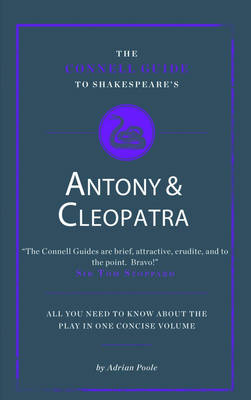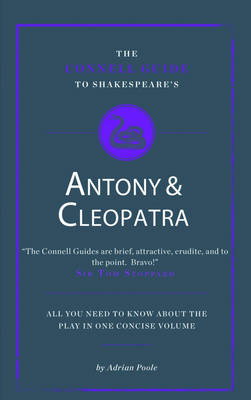
Door een staking bij bpost kan je online bestelling op dit moment iets langer onderweg zijn dan voorzien. Dringend iets nodig? Onze winkels ontvangen jou met open armen!
- Afhalen na 1 uur in een winkel met voorraad
- Gratis thuislevering in België vanaf € 30
- Ruim aanbod met 7 miljoen producten
Door een staking bij bpost kan je online bestelling op dit moment iets langer onderweg zijn dan voorzien. Dringend iets nodig? Onze winkels ontvangen jou met open armen!
- Afhalen na 1 uur in een winkel met voorraad
- Gratis thuislevering in België vanaf € 30
- Ruim aanbod met 7 miljoen producten
Zoeken
€ 12,95
+ 25 punten
Omschrijving
Writers, playwrights and philosophers have alike been fascinated by Shakespeare's Cleopatra. The contradictions in her character, said the writer Anna Jameson, fuse "into one brilliant impersonation of classical elegance, Oriental voluptuousness, and gipsy sorcery". When Henry James sought to suggest the charm cast over an impressionable but repressed American by a glamorous Parisian countess, it was Cleopatra's "infinite variety" to which he had recourse. There are two obvious reasons, says Adrian Poole, why the play has enjoyed a great leap in popularity and interest since the early 20th century. One is changing attitudes to gender and sexuality, and the relaxing of some of the taboos impeding the liberation of women from the confinements and distinctions in force at least since the Restoration. The other is changing conceptions of theatre. The advent of cinema encouraged lighter, swifter and more flexible forms of staging. One can scarcely think of a Shakespeare play that benefits more from such a liberation. But there are other less obvious reasons. One is the opposition between love and romance on the one hand and politics and war on the other - the play's complex re-working of some age-old myths about Venus and Mars. As our own media daily insist, at least in the anglophone world, the love-affairs of the top dogs are matters of public interest. The fate of all those men and women sacrificed "to solder up the rift" between Antony and Caesar does hang on what happens, or fails to happen, behind the scenes. No play conveys this better than Antony and Cleopatra.
Specificaties
Betrokkenen
- Auteur(s):
- Uitgeverij:
Inhoud
- Aantal bladzijden:
- 110
- Taal:
- Engels
- Reeks:
Eigenschappen
- Productcode (EAN):
- 9781907776144
- Verschijningsdatum:
- 1/09/2018
- Uitvoering:
- Paperback
- Formaat:
- Trade paperback (VS)
- Afmetingen:
- 109 mm x 175 mm
- Gewicht:
- 154 g

Alleen bij Standaard Boekhandel
+ 25 punten op je klantenkaart van Standaard Boekhandel
Beoordelingen
We publiceren alleen reviews die voldoen aan de voorwaarden voor reviews. Bekijk onze voorwaarden voor reviews.











